
- Home
- About us
- Yoga Retreat
- 3 Days Himalayan Meditation in Rishikesh, India
- 7 Days Yoga & Meditation Retreat in Rishikesh, India
- 7 Days Yoga Nidra Retreat in Rishikesh, India
- 7 Days Breath & Pranayama Retreat in Rishikesh, India
- 10 Days Sun Salutation Retreat in Rishikesh, India
- 14 Days Yoga & Ayurveda Retreat In Rishikesh, India
- Teacher Training Programme
- Gallery
- Rishikesh Utsav
- Blog
- Contact us
- Home
- About us
- Yoga Retreat
- 3 Days Himalayan Meditation in Rishikesh, India
- 7 Days Yoga & Meditation Retreat in Rishikesh, India
- 7 Days Yoga Nidra Retreat in Rishikesh, India
- 7 Days Breath & Pranayama Retreat in Rishikesh, India
- 10 Days Sun Salutation Retreat in Rishikesh, India
- 14 Days Yoga & Ayurveda Retreat In Rishikesh, India
- Teacher Training Programme
- Gallery
- Rishikesh Utsav
- Blog
- Contact us
- Home
- About us
- Yoga Retreat
- 3 Days Himalayan Meditation in Rishikesh, India
- 7 Days Yoga & Meditation Retreat in Rishikesh, India
- 7 Days Yoga Nidra Retreat in Rishikesh, India
- 7 Days Breath & Pranayama Retreat in Rishikesh, India
- 10 Days Sun Salutation Retreat in Rishikesh, India
- 14 Days Yoga & Ayurveda Retreat In Rishikesh, India
- Teacher Training Programme
- Gallery
- Rishikesh Utsav
- Blog
- Contact us
- Home
- About us
- Yoga Retreat
- 3 Days Himalayan Meditation in Rishikesh, India
- 7 Days Yoga & Meditation Retreat in Rishikesh, India
- 7 Days Yoga Nidra Retreat in Rishikesh, India
- 7 Days Breath & Pranayama Retreat in Rishikesh, India
- 10 Days Sun Salutation Retreat in Rishikesh, India
- 14 Days Yoga & Ayurveda Retreat In Rishikesh, India
- Teacher Training Programme
- Gallery
- Rishikesh Utsav
- Blog
- Contact us
Permaculture
Permaculture is a sustainable design system that emphasises collaborating with nature to produce eco-friendly, self-sufficient ecosystems. It blends agricultural, ecological, and design principles to create productive and sustainable systems. The term “permaculture” is derived from “permanent agriculture” and “permanent culture,” indicating a desire to establish long-lasting, resilient systems.
“Permaculture: Principles and Pathways Beyond Sustainability” is based on three key ethics: earth care, people care, and fair share.
Permaculture is an innovative design framework that emphasises harmony with nature in order to create ecologically conscious, self-sufficient ecosystems. It combines agricultural understanding, ecology, and intelligent design to create systems that are both productive and long-lasting. The name “permaculture” is a combination of “permanent agriculture” and “permanent culture,” suggesting a vision for long-term sustainability and resilience.
Permaculture is really about creating sustainable landscapes and societies that cooperate with natural processes. Rather of imposing artificial solutions on the environment, permaculture aims to replicate natural patterns, resulting in regenerative and self-sustaining ecosystems.
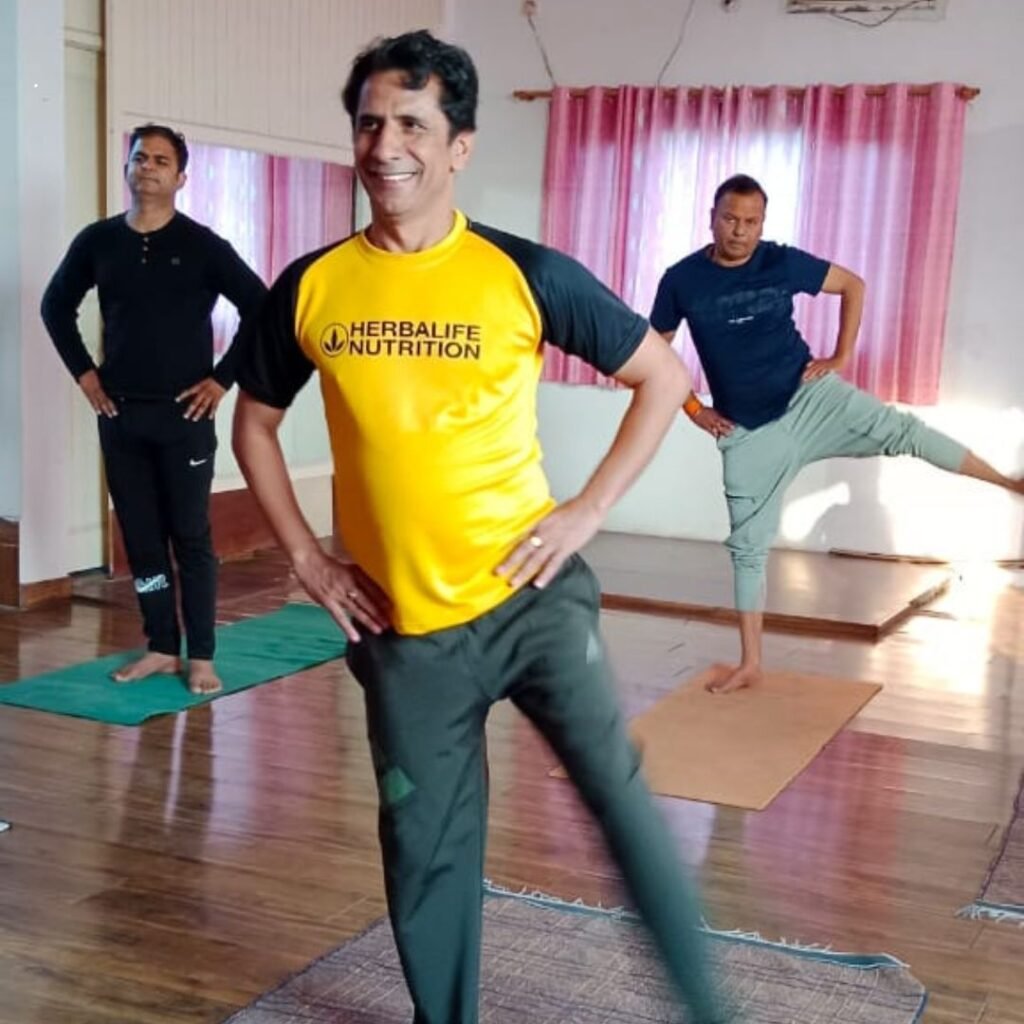
Permaculture
Permaculture is a sustainable design system that emphasises collaborating with nature to produce eco-friendly, self-sufficient ecosystems. It blends agricultural, ecological, and design principles to create productive and sustainable systems. The term “permaculture” is derived from “permanent agriculture” and “permanent culture,” indicating a desire to establish long-lasting, resilient systems.
“Permaculture: Principles and Pathways Beyond Sustainability” is based on three key ethics: earth care, people care, and fair share.
Permaculture is an innovative design framework that emphasises harmony with nature in order to create ecologically conscious, self-sufficient ecosystems. It combines agricultural understanding, ecology, and intelligent design to create systems that are both productive and long-lasting. The name “permaculture” is a combination of “permanent agriculture” and “permanent culture,” suggesting a vision for long-term sustainability and resilience.
Permaculture is really about creating sustainable landscapes and societies that cooperate with natural processes. Rather of imposing artificial solutions on the environment, permaculture aims to replicate natural patterns, resulting in regenerative and self-sustaining ecosystems.

Ethics of Permaculture
At Aranyaka Yoga Foundation, we believe in a holistic approach to living that not only nurtures the body and mind through yoga but also fosters a deep connection with the earth. Our commitment to sustainability is rooted in the principles of permaculture, a design system that works in harmony with nature to create self-sustaining ecosystems.
Permaculture at Aranyaka goes beyond traditional gardening. It is an ethical and sustainable practice that integrates land, resources, people, and the environment through mutually beneficial relationships. By mimicking the natural systems of the earth, permaculture allows us to grow food, restore ecosystems, and live in a way that enhances biodiversity and reduces our ecological footprint.
At our foundation, we incorporate permaculture principles in every aspect of our daily life—from the organic food we grow in our gardens to the sustainable architecture of our spaces. This approach aligns perfectly with the values of yoga, emphasizing balance, mindfulness, and respect for the natural world.
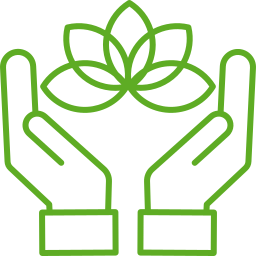
Earth Care
This idea emphasises the necessity of preserving and enhancing the natural environment. It entails protecting biodiversity, improving soil fertility, saving water, and boosting overall ecosystem health.

People Care
Permaculture seeks to address human needs in a way that promotes well-being while conserving natural resources. This idea motivates us to care for ourselves and our communities, ensuring that everyone's fundamental needs are satisfied in a sustainable manner.
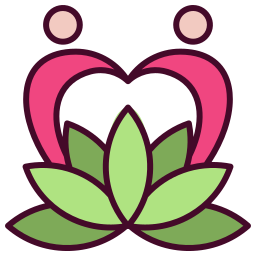
Fair Share
Also known as "Return of Surplus," this ethic promotes equitable resource distribution and the sharing of the earth's abundance. It calls for allocating excess to benefit both the environment and the community, ensuring that no one takes more than their fair share.
At first glance, yoga and permaculture may seem like two distinct practices—one focused on physical and spiritual well-being, and the other on sustainable agriculture and ecological design. However, they share a deep, interconnected philosophy rooted in balance, mindfulness, and living in harmony with nature. At Aranyaka Yoga Foundation, we integrate both practices to nurture a way of life that honors the interconnectedness of all living beings and the environment.
Yoga is not just about physical postures (asanas); it is a holistic practice that aims to balance the mind, body, and spirit. It encourages mindfulness, awareness of one’s surroundings, and the importance of living in harmony with the world. Similarly, permaculture is an approach to designing sustainable systems that mimic natural ecosystems, promoting balance between human activity and the environment. It teaches us to live mindfully, considering the long-term impact of our actions on the earth and future generations.
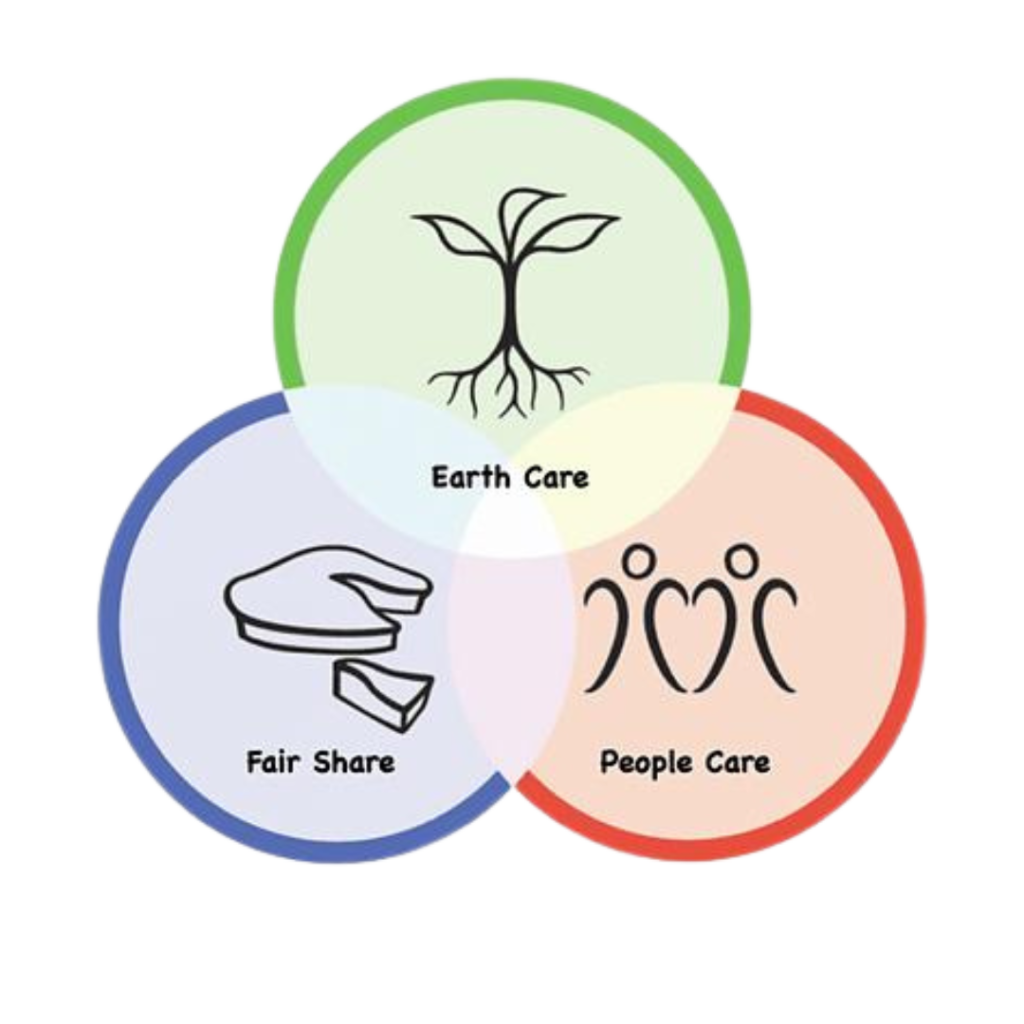


At first glance, yoga and permaculture may seem like two distinct practices—one focused on physical and spiritual well-being, and the other on sustainable agriculture and ecological design. However, they share a deep, interconnected philosophy rooted in balance, mindfulness, and living in harmony with nature. At Aranyaka Yoga Foundation, we integrate both practices to nurture a way of life that honors the interconnectedness of all living beings and the environment.
Yoga is not just about physical postures (asanas); it is a holistic practice that aims to balance the mind, body, and spirit. It encourages mindfulness, awareness of one’s surroundings, and the importance of living in harmony with the world. Similarly, permaculture is an approach to designing sustainable systems that mimic natural ecosystems, promoting balance between human activity and the environment. It teaches us to live mindfully, considering the long-term impact of our actions on the earth and future generations.
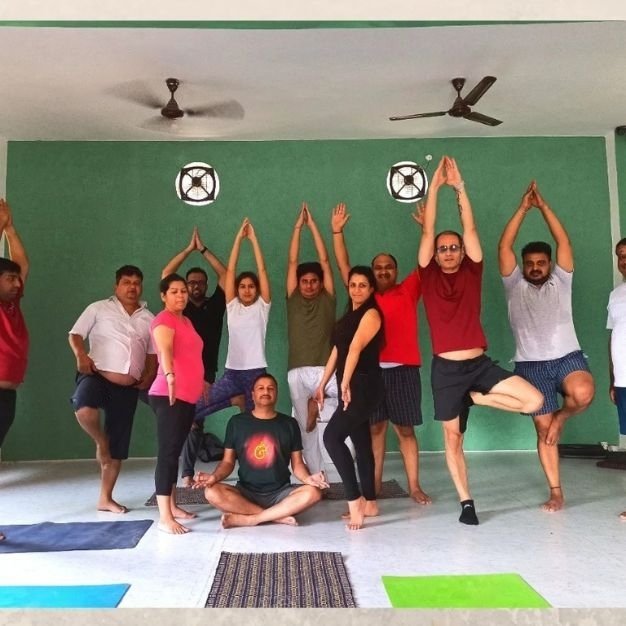
Mindfulness in Action
Both yoga and permaculture encourage mindfulness. In yoga, mindfulness is cultivated through meditation, breath control, and focused movement, helping individuals to stay present and connected with themselves. In permaculture, mindfulness is practiced by observing and working with nature’s systems—whether it’s the flow of water, the health of the soil, or the interaction of plants and animals. Just as yoga invites us to slow down and be present in each moment, permaculture requires us to deeply observe and understand the land before taking any action.
Balance and Harmony
Yoga seeks to balance the body’s energies, restore harmony between the physical and mental realms, and foster a sense of unity with the world. Permaculture operates on similar principles, seeking to balance human needs with the natural world. It encourages us to create systems where humans and nature coexist symbiotically. Both practices teach us to live in harmony, reducing waste, and minimizing our impact on the environment while enriching our personal lives.
